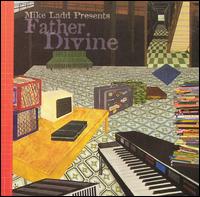 Time was, the words "Mike Ladd" were routinely thrown in alongside oneslike "Gil Scot-Heron." While the latter-named beat-poet is stillpopular in coffee houses and among staffs of student literary journals(as well as other places Ladd never broke into), the Cambridge, MA-bornformer's been sliding back into the obscurity from whence he came, abrief five years after dropping the masterful Welcome to theAfterfuture on us.
Time was, the words "Mike Ladd" were routinely thrown in alongside oneslike "Gil Scot-Heron." While the latter-named beat-poet is stillpopular in coffee houses and among staffs of student literary journals(as well as other places Ladd never broke into), the Cambridge, MA-bornformer's been sliding back into the obscurity from whence he came, abrief five years after dropping the masterful Welcome to theAfterfuture on us.ROIR
To his defense, we read he's been damn busy: he upand left his Brooklyn home base for Paris (like any good Americanwordsmith); explored; met someone special; and finally came back tostart a family and tie up some loose ends, namely, the Father Divineproject he'd left unfinished. The record is his first for ROIR, a labelhe chose to work with based upon its history with raw, analog-soundingmusic, even more specifically, Bad Brains. And I only know this because I readthe press release, not because I listened to Father Divine, easily the most electronic/mechanical sounding record Ladd's yet to put out.
His trademark poet's touch is still there—if you can find, hidden asit is underneath too-busy tracks like the blaring Casiotone sirens on"Awful Raw." Actually, the "poetry" isn't so hot on that one either, asit's a tirade on the evils of TV. Not that love's not a tired subject,but at least Ladd can ruminate on lovin' without sounding ridiculous.In fact, ignore all of that, because after "Awful Raw" and twopleasant-if-irrelevant all-instrumentals (one a jam session betweenan organ and a drum kit that somehow builds into an electro-discoclimax) Father Divine suddenly turns back into "classic" Ladd: the coffee house poet doign his thing behind a soft, neo-soulgroove backdrop.
There's some spots of brilliance in betweenthe new and the old. "Black Rambo" and the "Last Sea" provespace rock and downbeat jazz can jam in peace, and "Barney's Girl" is asoulful, playful trip that packages Ladd's powerful pen with hisremarkable storytelling ability. But the crazy shift...ah! Some mightcall the inexplicable segue Mike being "creative," but it feels like ahijacking. Rather than righting the ship, it capsizes it, and thatain't pleasant.
I really like Mike Ladd, he's stillhands-down one of the finest poets in hip-hop, with soul and spiritleaking from every stanza, and he's capable of unbridled creativity inthe often-stagnant world of hip-hop (last year's Negrophilia project is a prime example). At its very best, Father Divine can claim to be of the same Zeitgeist, but it's far too scattered and messy to make a compelling case. Hopefully, Father Divinewill be looked back upon as an aberration, because if it signals thestart of a trend for Ladd or takes attention away from gems like Negrophilia, it will be criminal.
samples:
Read More

